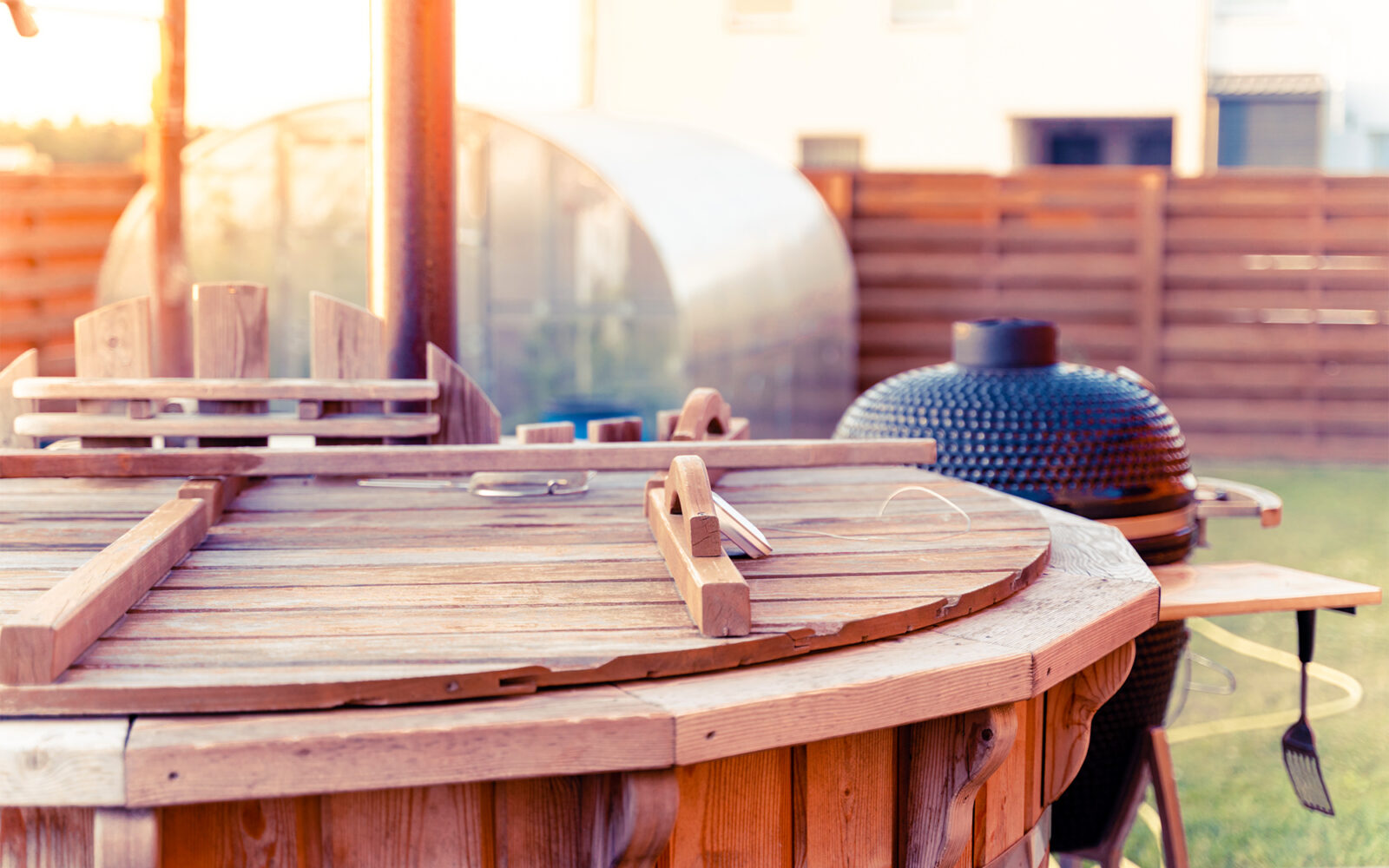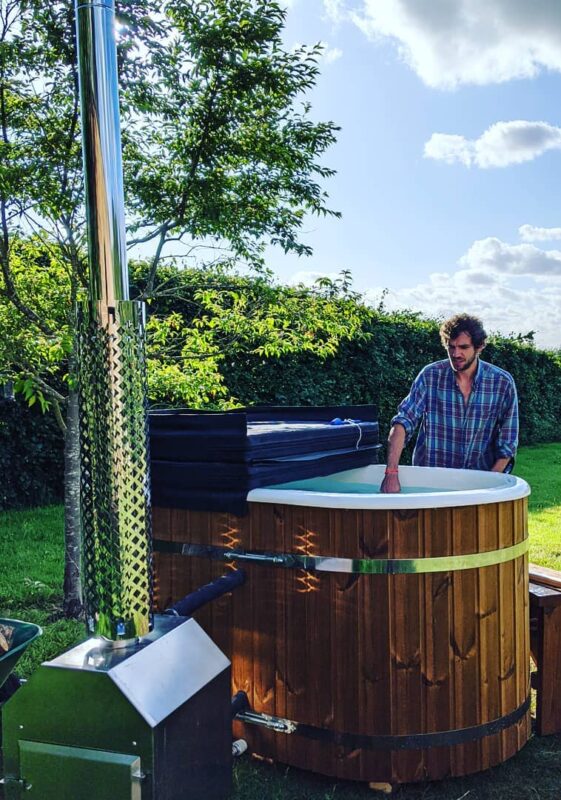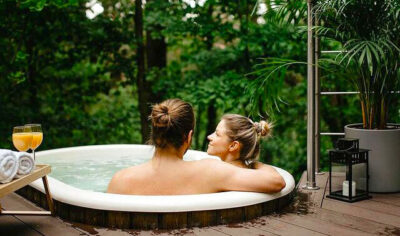Wooden Hot Tub Benefits

We all know that taking a hot bath is a fantastic way to relax – it often feels as though for every inch your body descends into the warm of the water, the weight of the world slips off your shoulders. Freud would doubtlessly have linked this to mental regression to the level of the womb, but the fact of the matter is that there is a far simpler explanation. As you lower yourself into the water your body actually does become lighter due to the relatively higher density of water than air, which lowers the strain on your body and heart. You thus not only feel, but actually are, lighter. That is but one of many advantages of hot tubs, however, and in this article we will dig deeper into some of the main benefits.
Relaxation for Mind and Body
Carrying on from the introduction, wooden hot tubs help you relax in more ways than one. While the warmth alone works wonders, both Larch and Spruce are held in high regard by aromatherapists for their relaxation benefits. While the warmth of the water reduces the strain on your heart, opens your pores and provides deep relaxation for your muscle tissue, the natural aromas of the wood provide mental relaxation. Similar benefits can be reaped from saunas, which is why they are quite commonly found in slightly up-market gyms; however, only hardened sauna enthusiasts can stay in them for long enough to provide the same level of benefit as a hot tub.
Joint Pain Relief
Joint pain is a very common affliction, particularly with the slightly more mature and those who go through tough exercise regimes. Joints are often the weakest links in our physiques and what stop us from performing to our full potential. Like the creaking hinges of an old door, our joints suffer wear and tear through years of use – and cold, damp weather tends to make the associated pains worse. The elderly are often recommended to keep their heating on in the winter and go on holidays if they can, as it has been proven that heat alleviates their joint pains. Similarly, athletes often enjoy long warm showers after exercise, and/or apply deep heating ointments to their joints and muscles to combat strain related pains and inflammations. Hot tubs provide deep-working pain relief for joint pains through improved circulation and muscle relaxation. Experts in the field of alternative healing also hold wooden hot tubs to have anti-inflammatory properties.
Type-2 Diabetes & Weight Management
A medical study published in the New England Journal of Medicine1 found that type-2 diabetics who sat in a hot tub for 30 minutes per day, 6 days per week, benefitted from significantly lowered blood sugar levels. The subjects also experienced a significant level of weight loss, despite their diets and exercise routines remaining stable for two months before and throughout the study. The author posited that the benefits may be derived from increased blood flow to skeletal muscles.
1Hooper, P.L. (1999) ‘Hot-tub Therapy for Type 2 Diabetes Mellitus’, New England Journal of Medicine, vol.342, no.3, pp.218-219
Aid for Insomniacs
While the relaxation provided alone might be enough to help you get to sleep, taking a hot bath actively helps you fall asleep through increasing your body temperature. Soaking in a hot bath raises your body temperature, and it has been found that the slow and steady return to normal temperature induces sleep2. This is basically an extension of the body’s natural temperature regulation when we sleep; as we enter our sleep cycle, the body’s temperature is naturally lowered, and it reaches its lowest point some for hours into the sleep cycle2. Using a hot tub therefore helps induce sleep not only by providing deep relaxation, but by aiding the onset of your body’s natural sleep cycle. Hot tubs thus provide a natural alternative to medication, which often carries with it unwanted side-effects such as drowsiness, weight gain and nausea.
2Levy, P., Viot-Blanc, V. & Pépin, J.L. (2006) ‘Sleep Disorders and Their Classification – An Overview’, in Randerath, W.J., Sanner, B.M. & Somers, V.K. (eds): Sleep Apnea. Prog Respir Res., vol.35, pp.1-12, Basel: Karger
Personal Enjoyment
While it’s easy to get carried away with the physical and mental benefits of hot tubs, such as those discussed above, let’s not forget perhaps the main reason why a lot of people buy tubs: they’re a great way to relax with family and friends. Regardless of temperature and despite the often disappointing British summers, hot tubs offer fantastic opportunity to relax with someone you hold dear. The combination of their relaxing effects and the fact that they stimulate endorphin release make hot tubs an ideal place to chat away with friends and family – you may be surprised to see how keen people become to come over for a visit!



